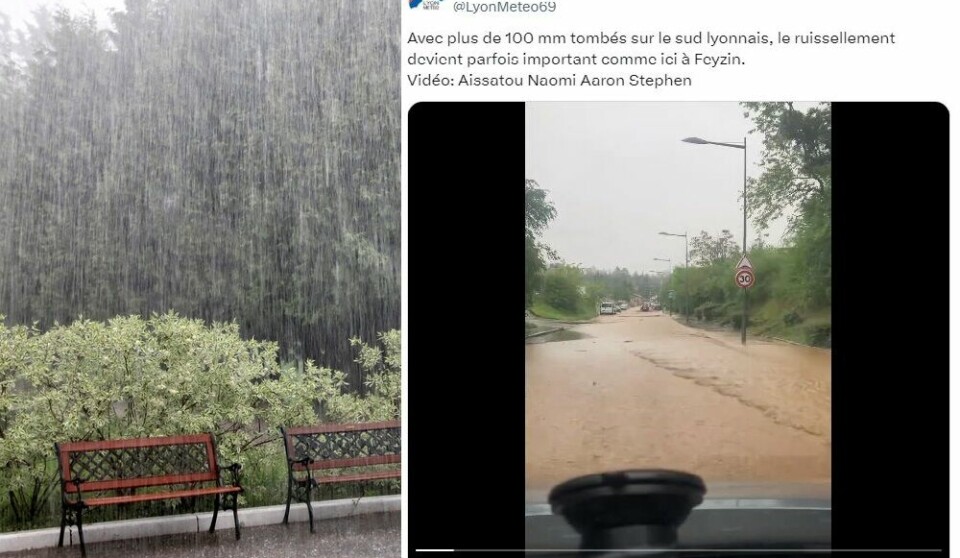-
Planning to replace your boiler at home in France? Now is a good time
Eco-friendly alternatives will be easier – and cheaper – to install from mid-May
-
Address change deadline looms for one million French homes
Mairies of small communes must update a government website with all the new street names and house numbers
-
Medical fees, eco-grants, gas prices: 5 changes this May in France
We also include the French income tax declaration deadlines for residents and second-home owners and other dates coming up
Home sale in France annulled as visible faults not stressed at viewing
The estate agent should have informed buyers of issues even if they were clearly noticeable, court rules

Estate agents must point out defects with a property during viewings even if they are clear to see, France’s highest judicial court has ruled.
The ruling comes from a case over a house sale in northern France, which was transferred to the Cour de cassation after the local court in Amiens ruled against the buyer.
The estate agent argued that the faults of the property – including defective window installations, issues with flooring, and signs of water seepage from the roof – were evident to see and therefore did not need to be pointed out.
The Cour de cassation usually requires prospective buyers to pay a minimum degree of attention (minimum d’attention) during viewings in regard to obvious faults, but this time ruled against the estate agent.
The court said that if a defect was clear to the buyer (as was argued), it must also have been clear to the estate agent, and they were therefore required to point it out to their clients, even if obvious.
The court annulled the property sale at the request of the buyer, and the estate agent was ordered to pay compensation (the amount was not disclosed in court notes). You can read the full court report here.
Vices cachés clause invoked by court
The rescinding of the sale was based on the ‘vices cachés’ clause which is included in French property sales.
This usually relates to major defects with the property that seriously affect it, or make it uninhabitable, that are noticeable to professionals (tradespeople, estate agents, etc) but not necessarily to buyers.
Usually, as their name implies, these defects are hidden to those who are not experts in the field, and thus it is the requirement of a professional to explicitly point them out.
The seller of the home stated that the defects related to the flooring and windows were caused by renovations made by her parents when she was still a child, and she was therefore uninformed of them and could not pass this information onto the buyers.
She had since moved to Canada so was unaware of the state of the property, relieving her from the requirements to pass on this information, which then fell to the estate agent.
The second ‘noticeable’ defect, of seepage from the roof, was noted by an insurance expert’s appraisal one month after the sale, which deduced that damp on the walls was present during home viewings.
In both these cases, then, it was the responsibility of the estate agent to point out the faults, even if they were visible.
Read also: Couple cannot demolish and rebuild French home even if not protected
Other similar cases highlight new trend
This ruling is the most recent in a trend that has seen the onus of responsibility placed more so on sellers and experts rather than buyers over vices cachés.
One recent case saw the courts rule in favour of a buyer who began renovation works on a recently purchased property, that could not be completed due to the roof being faulty before he purchased it.
In addition, The Connexion highlighted a case in November 2023 about property owners who carry out significant DIY projects being judged at fault for vices cachés, fulfilling the role of ‘expert’ for their work even if they have no qualifications in the field.
Read more: Sellers responsible for DIY defects in French home after sale
What is the responsibility of the estate agent?
The role of an estate agent during a sale is to “act as an intermediary between the buyer and the seller,” says website Mynotary.
This includes “encouraging the seller to provide all the necessary information, as well as informing the buyer of every detail about the property during viewings.”
Explicit and visible defects need to be pointed out alongside hidden defects, as part of the estate agent’s remit.
Estate agents who do not do this can see the sale annulled, or the sale price reduced, anytime up to two years after the date of sale.
They may also be made to pay compensation, or face sanctions.
Related articles
Hundreds of estate agents close in France as property sales plummet
Property buyers in France scammed out of €26,000 by fake bank advisor























